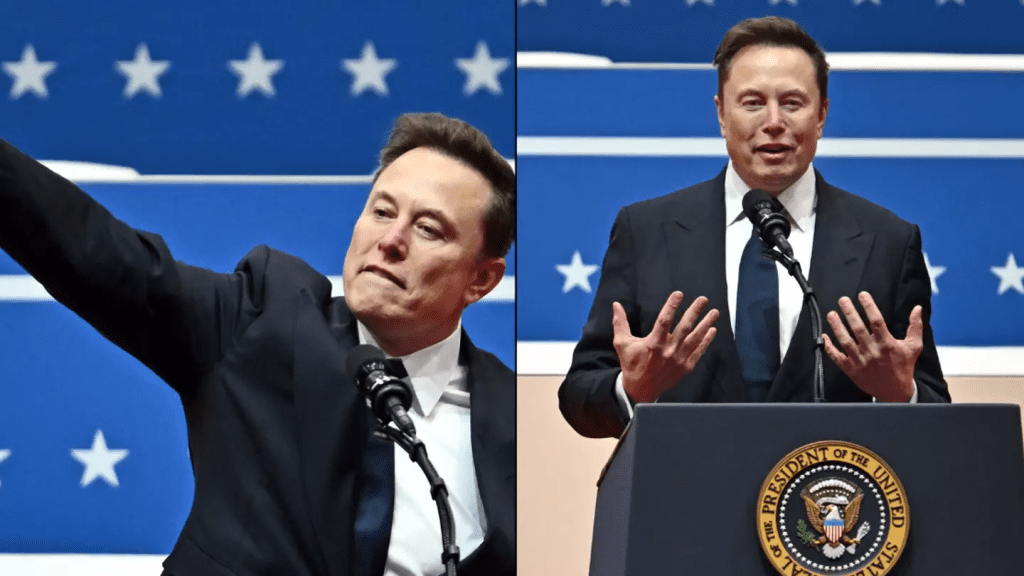
Elon Musk has addressed the backlash following his appearance at Donald Trump’s inauguration, where some viewers accused him of making a “Nazi-style” salute on stage. The Tesla and SpaceX CEO was in Washington, D.C., on January 20 for the inauguration of the 47th President of the United States.
During the event, as Trump delivered his speech, Musk appeared to make several unusual gestures that sparked controversy. One moment, Musk was seen raising his arm in what many viewers described as resembling a Nazi salute, a gesture that is often associated with fascist symbolism. This followed his comments about sending U.S. astronauts to Mars, where he thanked the crowd for helping Trump secure the 2024 election win.
The gesture quickly sparked outrage on social media, with some calling out Musk for making a salute reminiscent of the Nazi regime’s infamous “Sieg Heil” motion. Discussions flooded platforms, including Musk’s own X (formerly Twitter), where users criticized the billionaire for his actions.
Musk responded to the criticism by mocking the accusations. He shared a post referencing the incident, sarcastically dismissing the controversy by saying, “Frankly, they need better dirty tricks. The ‘everyone is Hitler’ attack is sooo tired.” He also responded to another comment with a yawning emoji, implying that the Nazi accusations were overblown.

The Anti-Defamation League (ADL) defines a Nazi salute as raising an outstretched arm with the palm facing down, a gesture that has been historically linked to Nazi propaganda. However, Musk’s explanation of the incident suggests he did not intend any fascist connotation, and he has consistently dismissed similar claims as part of a political “dirty tricks campaign.”
Despite Musk’s attempt to downplay the situation, the controversy has raised questions about the nature of political symbolism and the responsibility of public figures in the context of highly charged events. Musk’s remarks, while intended to deflect criticism, have only fueled ongoing debates about the boundaries of acceptable behavior in political and public spheres.


